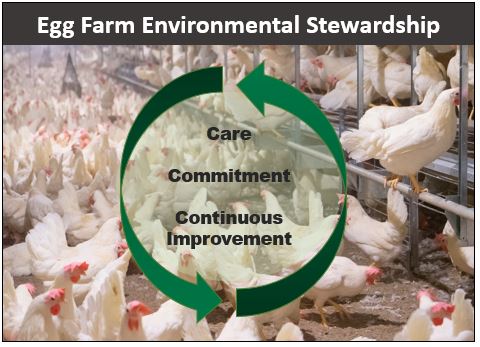The Quietly Amazing Story of Eggs, Hens, Farmers and the Environment
September 6, 2019
September 6, 2019

Egg farmers go about their business quietly, with a simple but focused commitment on continuous improvements in how they care for and raise their hens to produce eggs. This care starts with forethought into how best to design the system that egg farmers will use to house, feed and care for their laying hens.The goal of this planning? Egg farms that are thoughtfully designed and constructed so that when the farms are in operation:
The process of learning about and improving these systems never ends. Egg farmers are always working with top scientists, researchers, engineers and technical experts, studying their egg farming systems, looking for ways to make them better. When they find these improvements, the changes are incorporated into the next generation of egg farms’ design and operation.
The results of egg farmers’ care and commitment speak for themselves….
Farmers do this because it is the nature of farming – a quiet focus on solving problems and using resources wisely, efficiently and productively.
And what makes all of this so amazing is the scale – 90 billion+ eggs.
Care, commitment, seeking continuous improvement, attention to details, with a focus on caring well for their hens, producing 90 billion eggs, and doing all of this responsibly in order to protect the environment – this is the quietly amazing story of eggs, hens, farmers and the environment.
Learn more about responsible egg production. Follow UEP Certified on Facebook and Twitter.